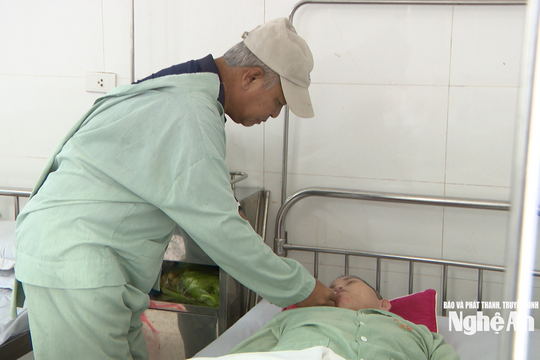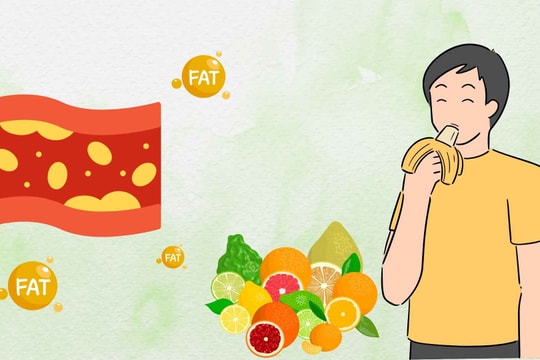Can eating an egg a day prevent stroke?
Recovering the reputation of eggs has been a long road. Once considered a leading culprit in high cholesterol and heart disease, science has found little solid evidence to support that claim. Now, a new review published in the Journal of the American College of Nutrition suggests that eggs may even help reduce the risk of stroke.
Researchers analyzed seven similar studies that looked at the effects of egg intake on heart health. As with previous studies, they found no clear link between coronary heart disease or overall heart disease and regular egg consumption. However, eating up to one egg a day was associated with a 12% lower risk of stroke.
 |
Although the findings don't explain why eggs may prevent strokes, there are several possible explanations, according to Dominik Alexander, PhD, of the EpidStat Institute in Ann Arbor, Michigan.
"Eggs have many positive nutritional properties, including antioxidants, which have been shown to reduce oxidative stress and inflammation. This food is also an excellent source of protein, which has been linked to lower blood pressure."
However, further research will be needed to find out which aspect of the egg is responsible for this.
Last year, the 2015 Dietary Guidelines for Americans broke with longstanding tradition by removing the recommended limit on dietary cholesterol from dairy, which is also high in eggs. The guidelines also touted eggs as one of many “nutrient-dense foods” that are “rich in vitamins, minerals, and other natural substances that may positively impact health.”
Combining eggs with a healthy mix of vegetables has been shown to increase the absorption of other antioxidants like carotenoids.
Prevent stroke and disability in 6 simple steps
1. Quit smoking
If you want to live a healthy life, quitting smoking is the first step. Smoking is linked to many types of cancer, heart disease, and a host of other health problems.
Smoking can increase blood fats, reduce "good" HDL cholesterol, damage the lining of blood vessels, and narrow blood vessels that block blood flow. Smoking can also cause blood clots that block blood flow to the heart.
2. Exercise
A recent study found that exercising two hours a week reduced the risk of stroke in women by 50%. The evidence says: Staying physically active improves heart health and lowers blood pressure – both of which are strongly linked to stroke risk.
3. Maintain a healthy weight
Preventing obesity and exercising go hand in hand. Being overweight or obese is associated with a higher risk of diabetes, heart disease, and stroke — conditions that damage nearly every organ in the body through different mechanisms. Calculate your normal weight based on your height, or ask your doctor about a healthy weight range.
4. Eat well
Research has shown that eating plenty of fruits and vegetables, as well as nuts and fish, can significantly reduce the risk of stroke. In particular, the Mediterranean diet – olive oil, salmon, cruciferous vegetables, whole wheat and grains, and legumes – not only reduces the risk of stroke, but also improves many other aspects of health, from cognitive function to mental health. On the other hand, foods high in fat, sugar, and salt can be harmful to blood vessels and the heart.
5. Drink alcohol in moderation
According to the American Stroke Association, “regularly drinking large amounts of alcohol significantly increases the risk of stroke.” Heavy drinking leads to high blood pressure, weight gain, and liver damage. It also contributes to atrial fibrillation.
Drinking a glass of wine or beer a day is a sign of healthy moderation — but anything more than that can trigger long-term chronic problems.
6. Relax
If you're feeling overwhelmed by the lifestyle changes you need to make, you might want to do this first: Relax and reduce stress. Research has linked high stress levels to high blood pressure and stroke risk, especially for women.
Find a few ways to relax when you find your stress and anxiety levels getting out of control — whether it's taking a longer bath, going for a walk, hitting the gym, or reading a good book with a glass of wine.
Other risk factors for stroke include oral contraceptives, hormone replacement therapy, hormonal changes during menopause, gestational diabetes, and preeclampsia. Other studies have found that air pollution is also associated with stroke risk.
But if you're trying to make a difference today, start with these six simple steps that are within your reach. Your body will thank you.
According to Dantri
| RELATED NEWS |
|---|


.jpg)
-6c936385358262921c0884226b06c05a.jpg)

.jpeg)


